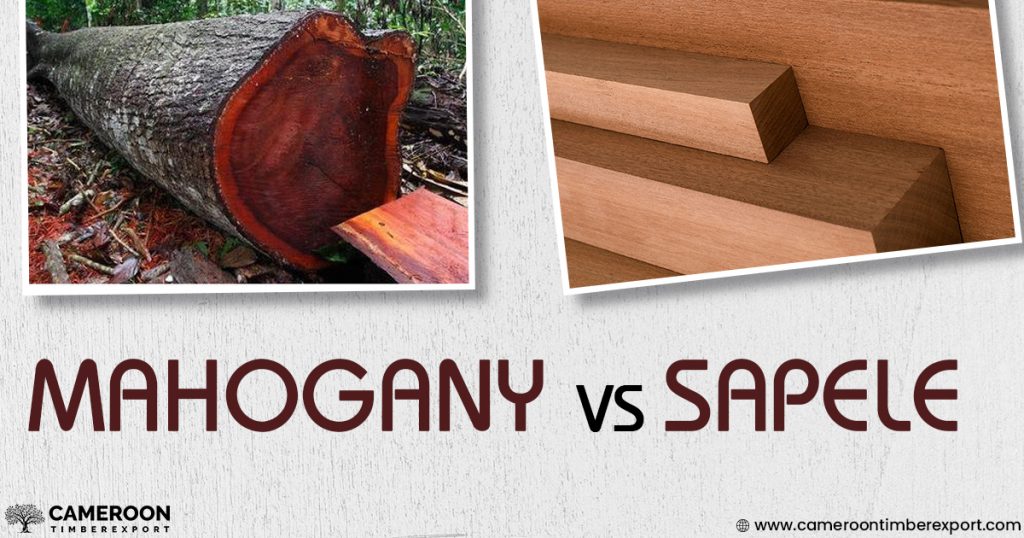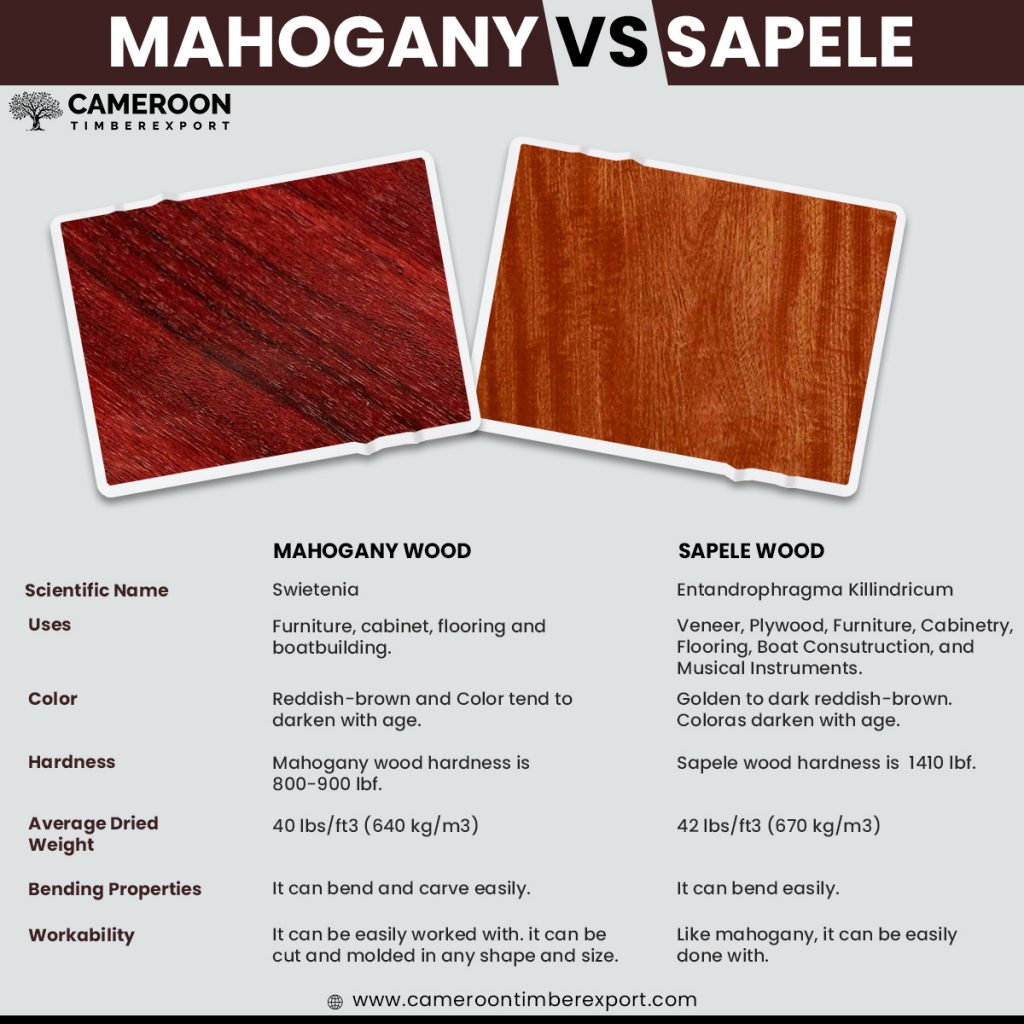African Mahogany vs Sapele, Here is a brief comparison between two of the most famous and hot-selling African timber species. Sapele is often used as a mahogany substitute because it looks the same and has properties similar to African Mahogany.
Here at CameroonTimberExportSarl, we have plenty of stock of both Mahogany and Sapele, which can be exported to your location anywhere in the world. CameroonTimberExportSarl is your best source to buy top quality African Mahogany at wholesale prices. All our timber is sourced from local timber producers who follow the best quality and sustainability guidelines.
If you are looking to know more about Mahogany and Sapele, along with their differences, you’re at the right place.
African Mahogany Vs Sapele
Traditionally, the price of African Mahogany has generally been higher compared to Sapele because of its high demand and extraordinary properties. However, Sapele has also been in high demand lately. Let’s discuss the difference between these two based on properties, demand, availability, price, color, and other factors.
#1 Differentiation On The Basis Of Properties
African Mahogany, also known as Khaya, has its distribution limited to West tropical Africa. Its tree is about 100-130 ft tall and has a 3-5 ft trunk diameter. Mahogany heartwood color may range from pale pink to dark red and sometimes has medium to dark red-brown streaks on it. The wood grain is straight to interlocked and the texture is medium to coarse. Mahogany is moderately durable to moisture and has decent rot/insect resistance.
Sapele is a hardwood found in tropical Africa. It’s tree is about 100-150 ft tall and has a trunk diameter of 3-5 ft. The heartwood is golden to dark red, with its color darkening with age. Ribbon-like and other patterns are common on quartersawn Sapele boards. The wood has interlocked or wavy grain with fine uniform texture. It is classified as very durable and has moderate insect resistance.
Hardness & Color
While African Mahogany has a Janka Hardness of 1,070 lbf (4,760 N), Sapele has 1,410 lbf (6,280 N) Janka rating, which makes Sapele harder than mahogany.
Workability & Drying
Mahogany is generally very easy to dry. Sapele, on the other hand, is difficult to dry, especially in the quartersawn.
Mahogany may have interlocked grain, which sometimes makes tearing difficult. However, it’s generally easy to work, and glues and finishes well. Sapele also has interlocked grain, which can lead to difficulty in machining operations. Also, the wood is known to react with iron, which leads to discoloration and staining. It’s easy to glue and finish.
#2 Differentiation On The Basis Usage
Mahogany is one of the most popular and used woods for both exterior and interior works. However, it has limited resistance to moisture and insect attacks, which is why it’s preferred for interior, veneering, plywood, furniture, and turned items. It is also commonly used for boat building.
Sapele is hard, heavy and quite dense and is the most suitable wood for flooring and exterior projects. Other common uses of Sapele timber include veneering, plywood, furniture, cabinetry, turned objects, boatbuilding, musical instruments, and other specialty wood items.
#3 Differentiation On The Basis Availability & Price
African Mahogany is available with a number of wood sellers and exporters and is rather easy to find if you know where to look. At CameroonTimberExportSarl, we sell Mahogany in a variety of custom timber sizes as well as mahogany slabs. Mahogany prices with CameroonTimberExportSarl are the lowest in the world.
Sapele is not as easily available as mahogany and can be priced moderate to expensive, depending on where you buy it from. We have the best-quality Sapele timber available in plainsawn, quartersawn, and veneer forms, which you can buy at wholesale prices right now.
Call us or send an email to info@cameroontimberexport.com to enquire about our timber species and place an order online in minutes. We deliver timber all over Europe and the Middle East, including UAE, Malaysia, Canada, Vietnam, Iraq, Saudi Arabia, Australia, Indonesia, Vietnam, and Panama.


